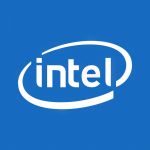Welcome to our dedicated page for Intel news (Ticker: INTC), a resource for investors and traders seeking the latest updates and insights on Intel stock.
Intel Corporation (INTC), the global leader in semiconductor innovation, maintains this dedicated news hub for investors and technology professionals. Access official press releases, financial announcements, and strategic updates directly from the company driving computing advancements worldwide.
This comprehensive resource aggregates Intel's latest developments across key operational areas including processor innovations, manufacturing expansions, and strategic partnerships. Users will find verified information on quarterly earnings, product launches, and technology breakthroughs - all essential for understanding the company's market position.
The curated collection includes updates on data center solutions, AI chip development, foundry services expansion, and sustainability initiatives. Bookmark this page to monitor Intel's progress in advancing semiconductor technology while maintaining awareness of industry-shaping developments.
Elliptic Labs, a leader in AI Virtual Smart Sensors, collaborates with Intel Corporation (NASDAQ: INTC) to integrate its AI Virtual Smart Sensor Platform into Intel-based PCs and IoT devices. This partnership allows manufacturers to utilize cost-effective software solutions for human presence and touchless gesture detection, eliminating the need for expensive hardware sensors. The collaboration aims to enhance product offerings across high-end and low-end markets, driving innovation in technology and improving customer experiences.
Intel is advancing its innovation strategy to continue Moore's Law with significant breakthroughs in packaging and transistor technologies. At the IEEE International Electron Devices Meeting, Intel announced a potential for more than a 10x density improvement in interconnect packaging and a 30%-50% scaling enhancement in transistor area. The company is also exploring new materials and concepts in physics, including GaN-based power switches and novel quantum computing devices, aimed at transforming the future of computing technology.
Intel Labs has launched the Research Center for Integrated Photonics for Data Center Interconnects in Santa Clara, California. This center aims to innovate optical I/O technology, focusing on enhancing performance and integrating photonics with CMOS circuits. As data demands strain current network capabilities, the research will address the limitations of electrical I/O. Key projects include developing low-power optical transceivers and nonvolatile optical networks, underscoring Intel's commitment to advancing computing technology through academic collaboration.
Intel has announced its plan to take Mobileye public in mid-2022 through an initial public offering (IPO), leveraging Mobileye's anticipated revenue growth of over 40% in 2021. Mobileye has achieved significant milestones, including shipping its 100 millionth EyeQ® system-on-chip and securing 41 new ADAS program wins. Intel will retain majority ownership of Mobileye post-IPO. The collaboration aims to enhance their combined automotive technology efforts. Intel emphasized that this IPO is targeted at unlocking value for shareholders without impacting its 2021 financial targets.
Intel has announced a fully virtual presence at AWS re:Invent 2021, featuring an interactive 3D "City on the Cloud" experience. The event runs from Nov. 29 to Dec. 10 and showcases AWS solutions powered by Intel. Key sessions include insights on 3D Athlete Tracking technology, high-performance computing for drug discovery, and India's CoWin vaccination platform. Intel will donate up to
Intel has launched the 12th Gen Intel Core processor family, featuring six unlocked desktop processors, including the Core i9-12900K, touted as the world's best gaming processor. Preorders are live, with full availability starting Nov. 4. The new performance hybrid architecture is built on Intel's 7 process, allowing for significant boosts in content creation speed and gaming performance. Enhancements include support for DDR5 memory and PCIe 5.0, targeting over 500 designs. Availability expected for over 140 customers across 30 countries, with pricing ranging from $264 to $589.
Intel recently announced significant innovations at its Intel Innovation event, emphasizing a commitment to developers and an open ecosystem. Key highlights include the launch of the 12th Gen Intel Core processors, designed for superior performance across all PC segments, and advancements in AI with the upcoming Aurora supercomputer, projected to exceed double exaflops in performance. A partnership with Google Cloud for the development of the Mount Evans ASIC-based IPU was also unveiled, indicating deep collaboration in enhancing cloud infrastructure.
Swiss Re is collaborating with Decentriq to enhance data privacy using Intel SGX technology. This partnership aims to secure sensitive datasets while performing analytics, addressing challenges in accessing such data. Swiss Re has demonstrated improved performance, security, and market speed through a proof of concept in marine insurance. This use of confidential computing is anticipated to unlock new business opportunities and enhance insurance pricing models as the industry adapts to a more data-driven environment.
Helbiz Inc. (NASDAQ: HLBZ) expands its partnership with Moovit, an Intel company (NASDAQ: INTC), to integrate its electric vehicles into the Moovit app. This collaboration will provide users access to Helbiz's micro-mobility vehicles in over 35 cities across the United States and Europe, including upcoming expansions to Spain, France, and Serbia. The integration aims to promote sustainable travel options and gather mobility data to alleviate urban congestion. Helbiz continues to enhance its services, contributing to smart city initiatives and the growth of green transportation.


